The Wrack
The Wrack is the Wells Reserve blog, our collective logbook on the web.
The Wrack is the Wells Reserve blog, our collective logbook on the web.
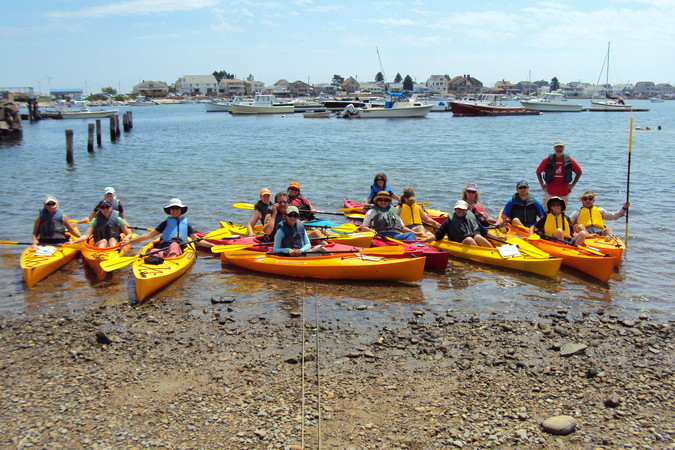
The four New England research reserves are putting teachers on the estuary again this summer by offering free workshops that will give educators data-driven climate change activities to bring back to their classes. Each of the four TOTE (Teachers on the Estuary) workshops, one 3- or 4-day session per reserve, will train a dozen educators in reserve-style environmental monitoring, "coastal blue carbon" concepts, and ways to understand and address climate change.
Please note: The workshop at Wells Reserve will be held Monday, July 11 through Thursday, July 14, 2016. Review of applications will begin May 31, 2016.
Wells Reserve TOTE Application
Wells Reserve TOTE Draft Agenda
Wells Reserve TOTE Promotional Flyer
To learn more about TOTE workshops, see the articles at wellsreserve.org/tote.
Teachers often don't get much exposure to estuarine and watershed concepts during their own education, so it can be daunting for them to develop a curriculum (and locate suitable data sets) around these topics. TOTE workshops show teachers how to access and employ custom curricula and data that already meet Next Generation Science Standards or state education frameworks.
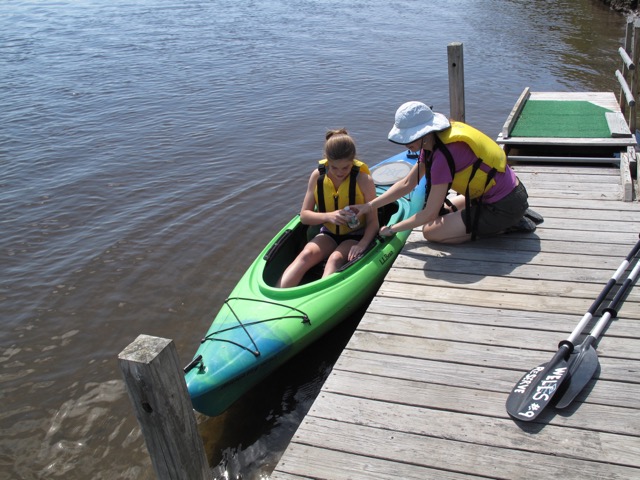 Early this summer our 12-year-old granddaughter from Ohio visited us here in Wells. We had heard about the reserve’s kayaking program and hoped she might be interested in trying it. We could sense a bit of trepidation on her part as she had never been in a kayak and would not know anyone in the group.
Early this summer our 12-year-old granddaughter from Ohio visited us here in Wells. We had heard about the reserve’s kayaking program and hoped she might be interested in trying it. We could sense a bit of trepidation on her part as she had never been in a kayak and would not know anyone in the group.
We met the others on a sunny morning in front of the barn and were greeted by the smiling and enthusiastic leaders, Suzanne and Kate. They would watch over Allie as neither of her grandparents could manage a kayak. We could sense our granddaughter begin to relax, especially upon being introduced to several who were also from Ohio.
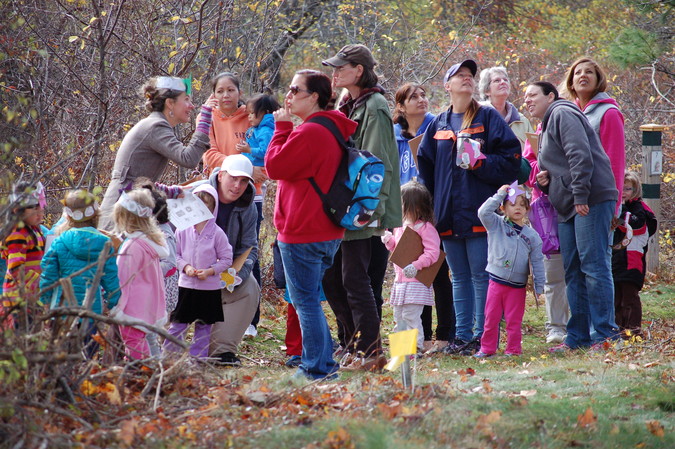 Thirteen Head Start preschools from across York County visited the Reserve on numerous occasions this past year to experience the great outdoors and make exciting wildlife discoveries. They came in the fall, winter, and spring seasons to hear a nature-based story, meet a variety of animal puppets, create a related craft to take home, and walk the trails while engaged in scavenger hunts and sensory adventures.
Thirteen Head Start preschools from across York County visited the Reserve on numerous occasions this past year to experience the great outdoors and make exciting wildlife discoveries. They came in the fall, winter, and spring seasons to hear a nature-based story, meet a variety of animal puppets, create a related craft to take home, and walk the trails while engaged in scavenger hunts and sensory adventures.
Stellar interns in spring 2015 helped with camps, events, digitizing records, fish research, and program promotion.
Warning: Mildly graphic images of wildlife below
Thanks to a couple of observant walkers, the Wells Reserve education programs will soon have a few new props to teach about our feathered friends out on the trails and along the beach. Last week, I received the bodies of a common murre and a red-tailed hawk that had been found dead: the murre found by volunteer-extraordinaire Stu Flavin along a beach during his morning dog walk; the hawk by a Reserve neighbor strolling through the woods. It’s always sad to see wildlife that have passed, and with these two birds the cause of death was unclear, though likely natural as they were found in their respective habitats. The silver lining for me is that they can live a second life as teachers, educating the public about their amazing adaptations and encouraging a deeper appreciation for their role in our natural world.
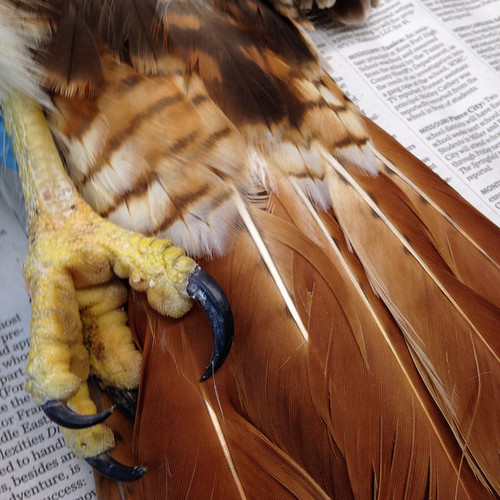
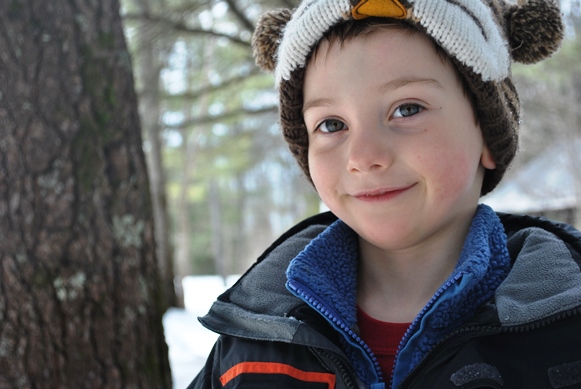
The following was published in the Biddeford-Saco Journal Tribune Sunday edition, 12/7/2014.
My family likes to takes walks, particularly in the fall and winter. Given the calories we’re consuming lately, and the long nights given over to reading and TV, we’re trying to grab every opportunity we can to stretch our legs and lungs outside.
While golf may be a great way to spoil a long walk, as the saying goes, fortunately there’s nothing like the scientific method to enhance a little wander through the woods. Proposing, testing, and analyzing hypotheses prevents hypothermia by keeping the brain warm, I tell my wife and kids. They roll their eyes… but then we find something to examine.
The following was published in the Biddeford-Saco Journal Tribune Sunday edition, 5/18/2014.
Hey, parents! Psst – come over here. I’ve got something for ya. Something I think you’re gonna like.
What if I told you I had something that supercharged your kids’ test scores and GPA, made them more attentive and cooperative, improved “good” cholesterol and blood circulation, lowered obesity and stress? How much would that be worth to you? What would you pay for this wonder drug? $100? $1,000?
Well, it’s not for sale. Actually, it’s free, it’s legal, and you’ve already got plenty at home.